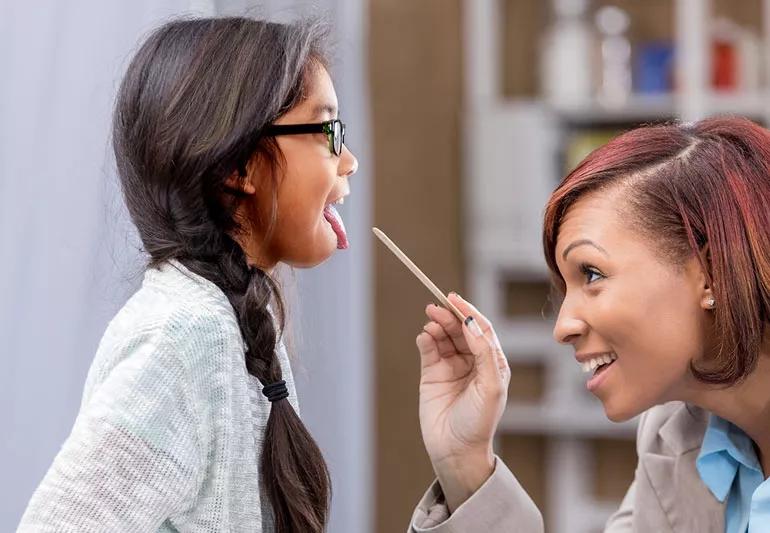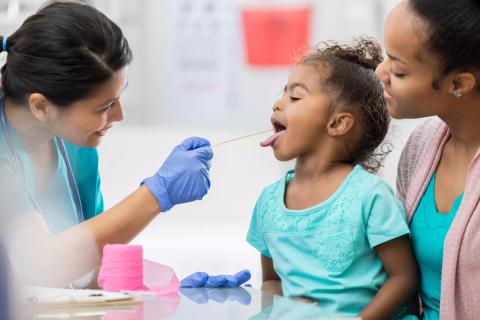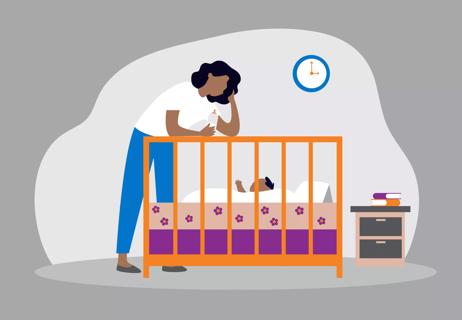The short answer from a pediatrician

If you suspect your child has strep throat, and you’re considering trying a home test kit, you may want to reconsider. Yes, these strep home test kits are modestly priced and convenient, but there are risks involved with attempting to test for strep at home.
Advertisement
Cleveland Clinic is a non-profit academic medical center. Advertising on our site helps support our mission. We do not endorse non-Cleveland Clinic products or services. Policy
The test checks for group A streptococcal infection in the throat, and these infections can result in serious complications in kids more than adults.
If strep is not discovered and treated in time, these post-strep infections may include (and are not limited to):
I recommend visiting a doctor’s office rather than attempting the test at home. As pediatricians, we are interested in making an accurate and timely diagnosis so we can start the appropriate treatment promptly.
Also, performing the swab for the strep test requires certain skill sets; our clinical caregivers in the office are trained to do these tests. Their quality and safety are observed and maintained.
If the rapid strep test in your doctor’s office comes back negative, we will follow that with a culture that will take 24 hours to confirm the diagnosis. This way, we are sure not miss a false negative test.
On the other hand, even if parents follow directions carefully, it’s possible that a lack of skill or training in swabbing the throat could affect the test’s results.
Advertisement
A home strep test could potentially:
For a variety of reasons, it’s best to be safe and seek a diagnosis in your pediatrician’s office.
— Pediatrician Wadie Shabab, MD
Advertisement

Sign up for our Health Essentials emails for expert guidance on nutrition, fitness, sleep, skin care and more.
Learn more about our editorial process.
Advertisement

Change your toothbrush after an infection and always take your full course of antibiotics to help ward off recurrence

It’s uncommon in kids under 3, but providers may test under certain circumstances

Gentle care, like moisturizing, washing and soft brushing, can help clear up cradle cap

Babies are born with very little of this vitamin, which plays a critical role in the blood clotting process

The emergency room is for serious medical issues; urgent care can help when you can’t get a quick appointment with your child’s doctor

Gripe water isn’t regulated by the FDA, and research doesn’t support its use

If you have other cold and flu symptoms, it’s probably not strep

Lice don’t jump — but they can spread with direct head contact

Even small moments of time outdoors can help reduce stress, boost mood and restore a sense of calm

A correct prescription helps your eyes see clearly — but as natural changes occur, you may need stronger or different eyeglasses

Both are medical emergencies, but they are very distinct events with different causes